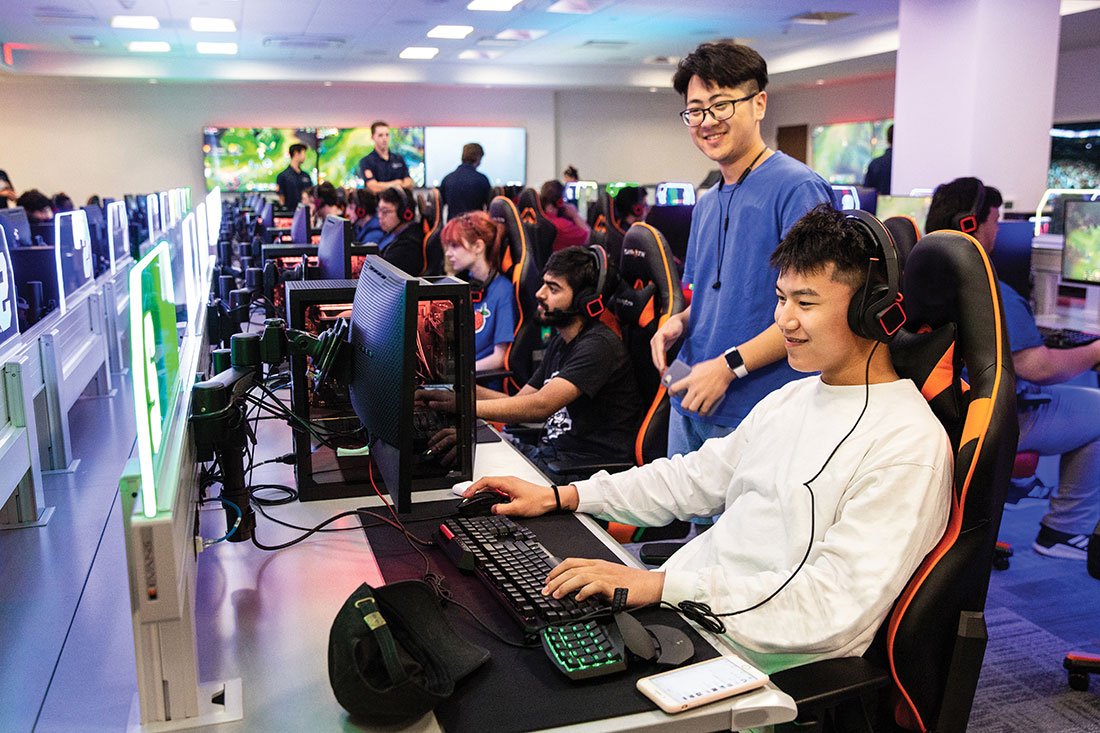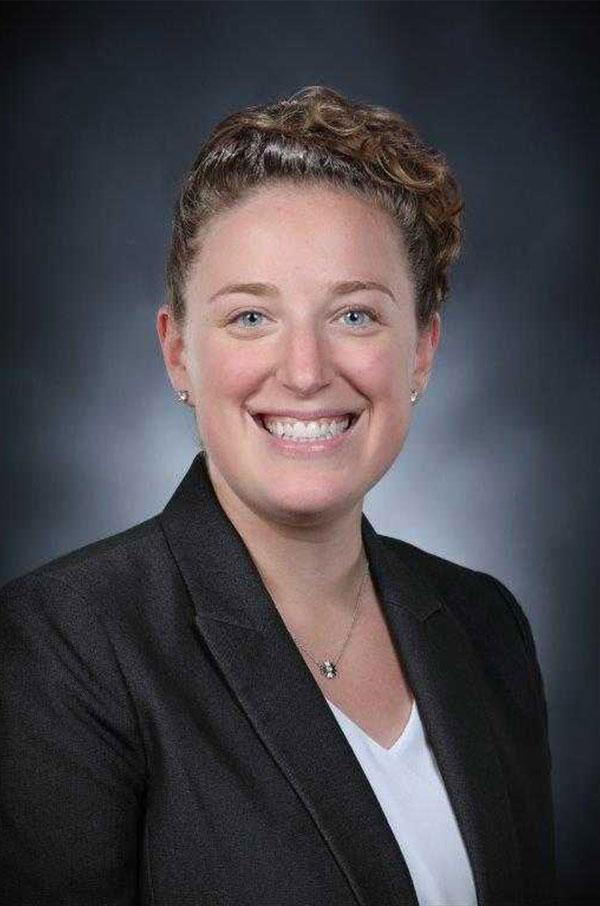
So Darvin, Ph.D., an assistant professor in the Department of Sport Management at Syracuse University’s Falk College of Sport and Human Dynamics, has dedicated her research and teaching career to creating greater equity in esports and gaming.
Darvin has emerged as a national leader in this area, and she was recently named a finalist for the National Association of Collegiate Esports (NACE) Scholar of the Year Award. The winner will be announced at the NACE National Convention July 17-19 in Winter Park, Florida.
“It’s such an honor to be nominated for this award,” Darvin says. “I was thrilled to learn I was a finalist and excited to know that the work I have been doing to drive greater equity in the gaming and esports’ spaces has been recognized by scholars and practitioners across the industry.”
Nationally, Darvin is making an impact as associate editor of the Journal of Electronic Gaming and Esports (JEGE); co-chair of the esports mini-track at the January 2025 Hawaii International Conference on System Sciences Conference, where her goal is advance esports scholarship and promote JEGE and publishing opportunities in the space; and a regular contributor to Forbes Magazine, where she writes columns such as this one about how an all-women’s Fortnite tournament is driving equity in esports.

On the Syracuse campus, Darvin has been awarded Falk College seed grants to examine the culture of gaming for gender minoritized participants, and to study the processes of building community in gaming spaces for minoritized participants.
She also received a Syracuse University SOURCE award to work with two undergraduate students on a multi-level review of the underrepresentation of women and girls in esports and gaming (the manuscript is currently being developed). Overall, Darvin has received more than $22,000 in grants and awards for esports and gaming research projects.
Starting this fall, Syracuse University is introducing an esports communications and management program that is being offered jointly by Falk College and the Newhouse School of Public Communications. The course that Darvin teaches, “Race, Gender, and Diversity in Sport Organizations,” will be a required course in this new major.
We reached out to Darvin to learn more about her motivation to create greater equity in the esports and gaming space. Here’s that conversation:
Were you – and are you still – a gamer, and what motivated you to find ways to build equity and community in esports and gaming?
I have been involved in traditional sport spaces from a very young age and for me gaming was always a bit of an escape from those experiences. I was largely a PC gamer when I was young and played a pretty wide range of computer games growing up. Then I moved over to a variety of mostly sport-based games on my Gameboy, and now I’m much more of a console gamer.
I really brought over a lot of my traditional sport experiences as an athlete into my curiosity regarding the levels of equity in esports and gaming. Having recognized initially the influence that traditional sport and gaming had on me in terms of building confidence and risk-taking, I want to ensure all girls and women have the opportunity to experience not only playing for enjoyment, but also the benefits that come from participation in gaming spaces.
Regarding greater equity in esports, can you discuss the progress so far and what you’d like to see happen next?
Girls and women game at pretty high proportions compared to boys and men. Anywhere from 30 to 60 percent of women and girls game, depending on the mode (mobile, PC, console). Game titles are slowly dropping off with the more harmful stereotypes and women are being more prominently featured–think FIFA and NBA2K, for example, with women being featured as avatars and on the marketing materials.
But overall, we are not seeing women and girls at the highest levels of gaming as participants, which means they aren’t seeing the same opportunities to monetize their abilities or build a career through gaming. Right now, only about 8 to 10 percent of collegiate varsity gamers in the U.S. are women, and only about 5 percent of professional gamers worldwide identify as girls or women.
This is what I would like to change in the future by using my research to highlight the cultural issues and organizational processes that sustain this underrepresentation. At the same time, I want to promote the importance of bringing more women and girls to the table–it’s good business.
Can you explain the value of your research in practical terms. That is, how have the results of your research played out in reducing the “isms” (racism, sexism, etc.) in esports and gaming?
To this point, my work across the esports and gaming spaces has focused on three key pillars: 1) Expose (the isms, barriers, and obstacles that limit the advancement of women and girls in the esports and gamine spaces); 2) Debunk (the myths that limit women and girls from climbing to the collegiate and professional ranks, such as stereotypes); and 3) Advance (new solutions, programming, and protocols, including my current work looking to apply Title IX policy standards to ensure equitable opportunities at the high school and collegiate levels of play).
The funding I have been awarded over the previous few years has significantly assisted in accomplishing this overall research agenda, including a 2023-24 Falk seed grant that allowed me to travel for in-person data collection activities and serve as an exhibitor at TwitchCon (a gaming convention). In-person data collection at these conventions is a key component to the work that I do in these areas given how difficult it is to remotely identify highly engaged gamers, and grant funding has greatly assisted in my ability to reach this population.
We’re very excited to welcome the new esports communications and management major to Falk College and Syracuse University. You played a key role in developing and planning the program. Can you discuss how your research and advocacy for equity in esports and gaming will intersect with the goals of the program?
It’s a very exciting time in our department with the esports program officially launching this fall (2024). Throughout some of the earlier stages of planning I was sure to highlight the role of this program in driving greater equity across the esports and gaming spaces. It’s so important that coursework and research works to shape a more inclusive industry for the students we are training to be out in this field.
We want to prepare students for a career that maintains inclusive organizational cultures. Our students are the leaders of tomorrow, and through exposing them to these equity issues across the industry during their time as undergraduates, we are preparing them to create change as they move up the ladder.
The research I conduct also maintains this same mission of working to expose cultures in gaming and esports organizations that may not maintain environments that are welcoming for all employees and participants. We want this new esports program to be a leader in this area and prepare students to create meaningful change in the work they do once they graduate.
Visit the Sport Management homepage to learn more about academic programs, experiential learning, and career opportunities in the sport industry. To learn more about the esports degree program at Syracuse University, listen to this podcast with esports Executive Director Joey Gawrysiak.
